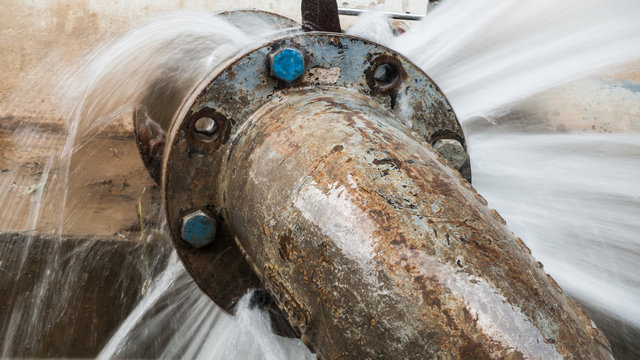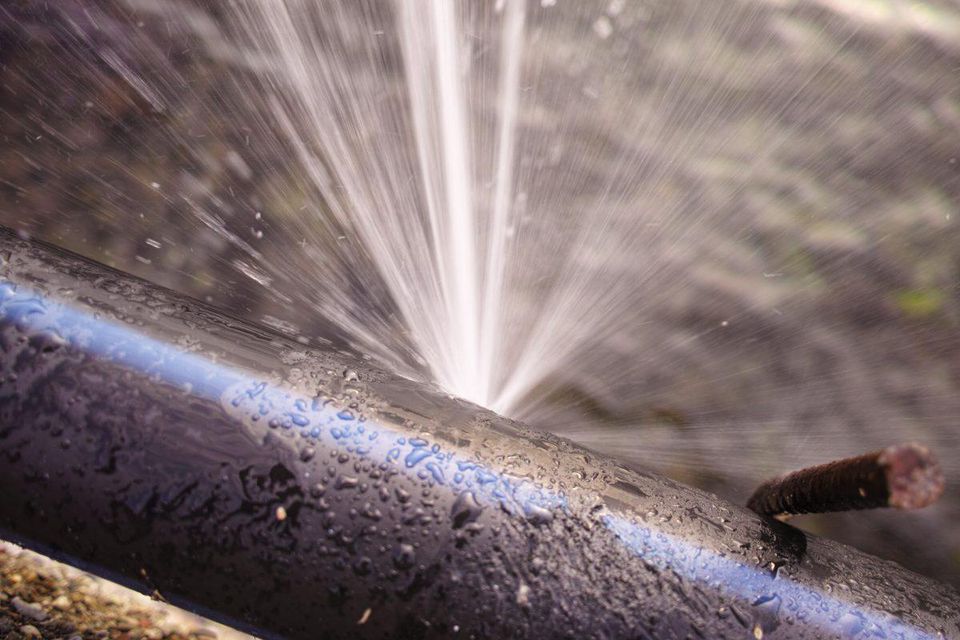5 Chief Triggers of Water Leaks
5 Chief Triggers of Water Leaks
Blog Article
Just about everyone will have their own individual assumption in relation to Where to Find Water Leaks.

"Beware of little expenses. A small leak will sink a wonderful ship." - Benjamin Franklin.
He couldn't have actually been a lot more appropriate due to the fact that water leakages in our homes result in a waste of resources, raising our water costs. This boost could seem minimal at first, it can lead to significant costs that can damage your bank. Aside from a boost in costs, water leaks additionally cause unwanted natural development, structural damage, as well as also electrical threats.
Identifying if you have a water leak isn't always easy due to being unable to see most of the pipework in your house. If you have had an increase in your water bills lately, saw water stains on wall surfaces and ceilings, scented lousy odor, and so on. You could intend to think about asking for plumbing solutions to get it checked out.
There are a number of causes of water leaks, and also we have actually compiled the usual factors below. Examine to see if you have had related concerns in your home lately.
Compromised pipe joints
Pipeline joints are the parts of our plumbing system where the pipes attach. It is crucial to keep in mind that even though pipelines are developed to withstand stress and last for a while, they weren't designed to last permanently; for that reason, they would certainly weaken over time. An usual sign of harmed pipeline joints is excessive sound from taps.
High water stress
You saw your home water pressure is more than typical however after that, why should you care? It runs out your control.
It would be best if you cared since your ordinary water pressure must be 60 Psi (per square inch) and also although your house's plumbing system is created to stand up to 80 Psi. An increase in water pressure can place a strain on your residence pipelines and cause splits, or worse, burst pipes. Obtain in touch with a specialist about managing it if you ever before observe that your house water pressure is higher than common.
Deterioration
As your pipework ages, it obtains weaker and also extra at risk to rust after the constant passage of water through them, which can eat away at pipelines and trigger splits. A visible indicator of corrosion in your house plumbing system is staining and although this might be tough to find due to a lot of pipelines hidden away. We advise doing a regular checkup every few years as well as transform pipelines once they are old to make certain an audio plumbing system
Obstructed drains
Food fragments, dirt, and oil can trigger clogged up drains as well as block the passage of water in and out of your sink. Raised stress within the rain gutters can cause an overflow and finish up breaking or bursting pipelines if undealt with. To stay clear of blocked drains in your house, we recommend you to stay clear of pouring particles down the drain and also routine cleaning of sinks.
Broken seals
One more source of water leaks in residences is broken seals of residence devices that use water, e.g., a dish washer. When such appliances are mounted, seals are set up around water adapters for simple passage of water with the device. Thus, a damaged seal can trigger leak of water when in use.
With little or no knowledge of plumbing, understanding your house's plumbing system adequate to deal with several of these concerns (without consequence) can be an inconvenience. Get in touch with plumbing experts in Pittsburgh, Providence, Rochester, as well as environ today, as well as they'll make those problems vanish.
He couldn't have actually been a lot more best due to the fact that water leakages in our homes result in a waste of sources, boosting our water costs. If you have had an increase in your water expenses recently, noticed water discolorations on walls and also ceilings, smelt poor smell, etc. A rise in water pressure can put a pressure on your home pipelines and also lead to cracks, or worse, burst pipes. Another reason of water leaks in homes is broken seals of residence appliances that use water, e.g., a dishwasher. When such home appliances are installed, seals are set up around water ports for very easy flow of water via the maker.
5 TIPS IN DETECTING A WATER LEAK IN YOUR HOUSE
Water leaks can be hard to find in your home, yet they can be so common. We rely on water every day in our home, which is why a leak can cause big problems. By detecting them early, you can save money and further damage, getting the problem fixed as soon as possible. Here are 5 tips to help you detect a water leak in your home, so you can contact a plumber straight away and get the issue sorted.
Check your water meter
Many people underestimate the value of the water meter in their home. It can be one of the best ways to tell if you have a leak early on, so you can get on top of it before issues start arising. Start by turning off all the water in your home: taps, washing machine, dishwasher, etc. Now take a look at the meter – if it’s still changing with everything turned off, it’s likely you have a fast-flowing leak that you need to get on top of straight away. If nothing changes, then leave your meter for an hour or two and come back to it. Did it change in this time? It’s likely you have a slower leak, which isn’t as urgent but still handy to get fixed so it doesn’t become a bigger problem.
Keep an eye on your bill
Another good way to detect a leak in your home is by keeping an eye on your water bill. It helps if you have a past bill from the same period of time. You can compare like for like and determine whether your water usage has increased significantly. If it has, there may be a leak in your system that you haven’t picked up before. A professional plumber can check through all of your pipes and determine where it is coming from.
Look for damage
If you have a leak inside your home, you will notice damage over time. Take a look at your showers and bathtubs and note whether any of the tiles surrounding the area seem to be discoloured or damaged in any way. There may be water stains, mould or peeling material that has resulted from a build up of moisture over time. Make sure you take a look under sinks at the back of cupboards that don’t get accessed regularly. This is where damage can go unnoticed and build up over periods of time.

As a passionate person who reads on Where to Find Water Leaks, I imagined sharing that piece of content was a great idea. Sharing is caring. You just don't know, you might be doing someone a favor. Thanks so much for going through it.
Detail Report this page